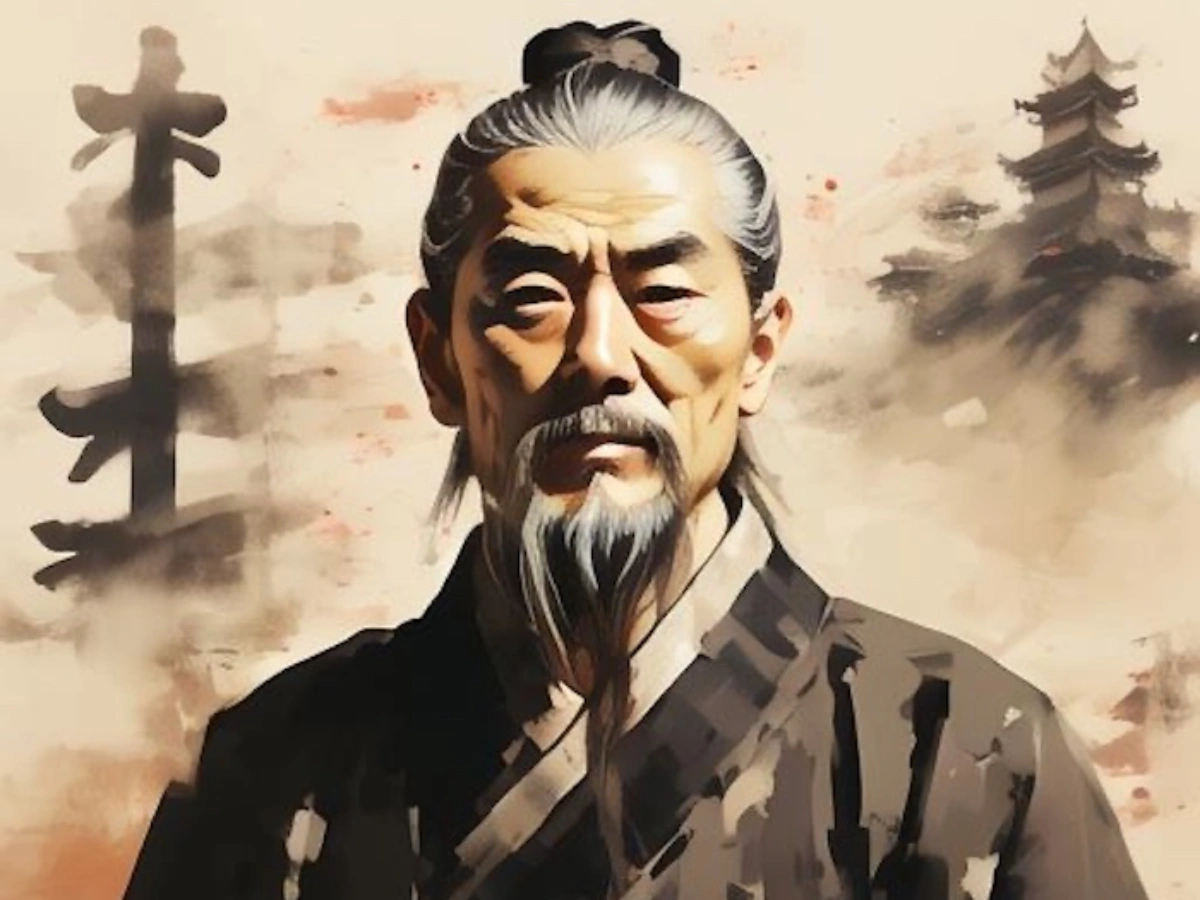Question:
During my in-depth study of Confucianism, especially when I read The Analects of Confucius, I frequently encountered the word “Junzi.” Therefore, I have developed a strong interest in the concept of “Junzi.” What does it mean in Chinese culture? What is its role in Confucianism?
—– Asked by Howard
Answer:
In Confucianism, there are two concepts with opposite meanings, Junzi (君子) and Xiaoren (小人).
Junzi Meaning
The concept of Junzi, often translated into “gentleman,” “superior person,” or “noble man,” has its roots in ancient Chinese philosophy, particularly in Confucian thought. A Junzi focuses on inner moral refinement, guided by virtues such as benevolence, integrity, and humility, and is highly respected as a model of character in society.
“Junzi” is often discussed in The Analects of Confucius. The book also describes the character, behaviors, and cultivation of a “Junzi.”
Characteristics of a Junzi
In Confucianism, a Junzi is regarded as the ideal person, embodying a range of noble qualities.
In the Analects of Confucius, the primary characteristic of a gentleman is “benevolence” (仁, ren), showing that a person not only cares for others but also possesses qualities like tolerance for others, forbearance, and self-cultivation.
Confucius believes that a Junzi’s words and actions should align with “righteousness” (义, yi), meaning they follow proper moral standards and prioritize the overall interests of society over personal gains. As Confucius said, “A gentleman understands righteousness, while a petty person understands profit.” A gentleman places righteousness above personal interest, valuing morality over material gain.
A Junzi also embodies “propriety” (礼, li), which is not just an external code of conduct but a reflection of internal moral cultivation. He focuses on inner growth, seeks harmony between reason and morality, and demonstrates a deep sense of purpose that transcends mere utilitarian goals. Therefore, a gentleman is not simply someone with social status but a model in morality and self-cultivation.
The Virtues of a Junzi
In Confucianism, the virtues of a gentleman are the fundamental expression of his character.
Confucius emphasizes benevolence (仁, ren), a sincere concern for others, which lies at the core of a gentleman’s virtues.
In the Analects of Confucius, a gentleman’s qualities: such as Gong (恭; respectfulness), Kuang (宽; generosity), Xin (信; trustworthiness), Min (敏; diligence), and Hui (惠; Kindness) are expressions of self-restraint and respect for others.
A gentleman’s humility, honesty, and generosity often win him the respect and trust of others. As Confucius said: “A gentleman is dignified but not arrogant, while a petty person is arrogant but lacks dignity.”
A gentleman is not only loyal and honest, but also deeply aware of his social responsibility, always putting the well-being of society above personal gain. Unlike the petty person, who seeks immediate personal benefit, a Junzi focuses on long-term moral ideals and the greater good of society.
According to Confucius, the greatness of Junzi lies not only in his wisdom in handling relationships, but also in his unwavering commitment to the principle of righteousness (义, yi), never swaying with the crowd or chasing after interests.
Behaviors of a Junzi
The behavior of a gentleman is not only outwardly noble but also a natural expression of inner moral cultivation. Guided by morality and responsibility, his actions align with personal self-cultivation and are dedicated to serving the long-term interests of society.
Confucius said, “A gentleman is concerned with the foundation; when the foundation is established, the way follows.” A Junzi’s behavior is rooted in moral principles, which are reflected in daily life.
“A gentleman seeks the Way, not material gain. In farming, hunger may come; in studying, rewards lie within.” (The Analects of Confucius: Wei Linggong). This emphasizes that a gentleman values righteousness over material wealth, pursuing spiritual fulfillment rather than worldly gain.
In the face of temptation and challenges, a Junzi remains calm and rational, unaffected by utilitarian desires. Confucius said, “A gentleman remains noble even in poverty, while a small man becomes unruly when poor.” (The Analects of Confucius: Wei Linggong). It means that a gentleman upholds his integrity and principles in difficult times, while a Xiaoren may lose his composure and become debased.
A Junzi’s behavior is the harmonious unity of his inner world and outward conducts, embodying moral ideals and social responsibility. Confucius said, “A gentleman’s actions in the world are impartial, always guided by righteousness.” (The Analects of Confucius: Liren). It highlights that a gentleman adheres to morality and justice in all matters, never favoring one side and always upholding fairness.
Junzi and Xiaoren
The terms “Junzi” (君子) and “Xiaoren” (小人) carry profound meanings in traditional Chinese culture, particularly in Confucianism.
The concept “Junzi” (君子) is often used to describe individuals with high moral character and upright conducts by improving self-cultivation and adhering to ethical standards.
In contrast, “Xiaoren” refers to those who are morally deficient, misbehave, and lack refinement and ethical principles. The actions of a Xiaoren are often short-sighted and utilitarian. They seek shortcuts and personal gain, disregarding moral norms and social responsibilities. Confucius criticized Xiaoren for pursuing material interests at the expense of higher moral standards and emphasized that such behavior often disrupted social harmony.
A Comparison of Junzi and Xiaoren
In The Analects of Confucius, “Junzi” is mentioned 107 times, while “Xiaoren” appears 24 times, 19 of which are in contrast with “Junzi,” forming a clear dichotomy.
Moral Viewpoints:
Junzi is centered on Yi, focusing on the overall welfare and long-term development of society. Xiaoren, on the other hand, is primarily concerned with personal gain, with behavior driven by short-term, utilitarian motives and a lack of deep moral consideration.
The Junzi has “righteousness” at his core, focusing on the overall welfare and long-term development of society. On the contrary, Xiaoren pursues personal gain, and his behaviour is opportunistic because of a lack of moral integrity.
Behavioral Standards:
A Junzi consistently demonstrates noble behavior, with a strong emphasis on inner cultivation and self-improvement. His actions are guided by moral integrity and a long-term commitment to societal well-being.
In contrast, a Xiaoren often alters his behavior based on immediate self-interest, short-term gains and low sustained moral self-discipline. Their actions are utilitarian, driven by selfish desires, and they disregard moral principles and social responsibility.
Personal Cultivation and Inner Qualities:
Junzi strives for ideal personal character and inner peace through continuous self-cultivation. Xiaoren, however, cares only for external honors and lacks thoughtful, deliberate moral standards.
Leadership and Influence:
Junzi’s leadership is grounded in moral authority, governing through virtue and setting an example for others. Xiaoren, in contrast, often gains power through manipulation and tactics, but lacks a solid moral foundation, making it difficult for them to earn lasting respect.
Life Goals and Aspirations:
Junzi’s life goal is the perfection of the self and the freedom of the spirit, with a focus on moral growth. Xiaoren, however, focuses more on material gain and short-term objectives, making them susceptible to external temptations.
The Concept of Junzi: Origin and Development
- The Origin
The term “Junzi” initially referred to individuals of high social status, without any moral connotations. It appears in early texts such as the I Ching and the Book of Documents. In the I Ching, “Junzi” refers to slave owners, while in The Book of Documents, it denotes those with political power.
2. Evolution (Spring and Autumn and Warring States Periods)
With the rise of Confucian thought, the moral connotation of “Junzi” gradually became clear.
Confucius first contrasted the “Junzi” with the “xiaoren” (petty person), emphasizing that the Junzi is guided by “righteousness” (yi), in contrast to the selfish pursuit of personal gain by the “xiaoren.”
In the Analects of Confucius, the term “Junzi” appears 107 times, marking the shift from social status to moral cultivation as the key defining trait of the Junzi.
3. Later Development
Since the Spring and Autumn and Warring States periods, the concept of “Junzi” has been continuously developed by Confucianism, becoming a central moral ideal in Chinese culture. The qualities represented by the Junzi, such as responsibility, benevolence, patriotism, and a pursuit of goodness, have deeply influenced Chinese values and behavior, becoming a unique spiritual hallmark of Chinese culture.


Leave a Reply